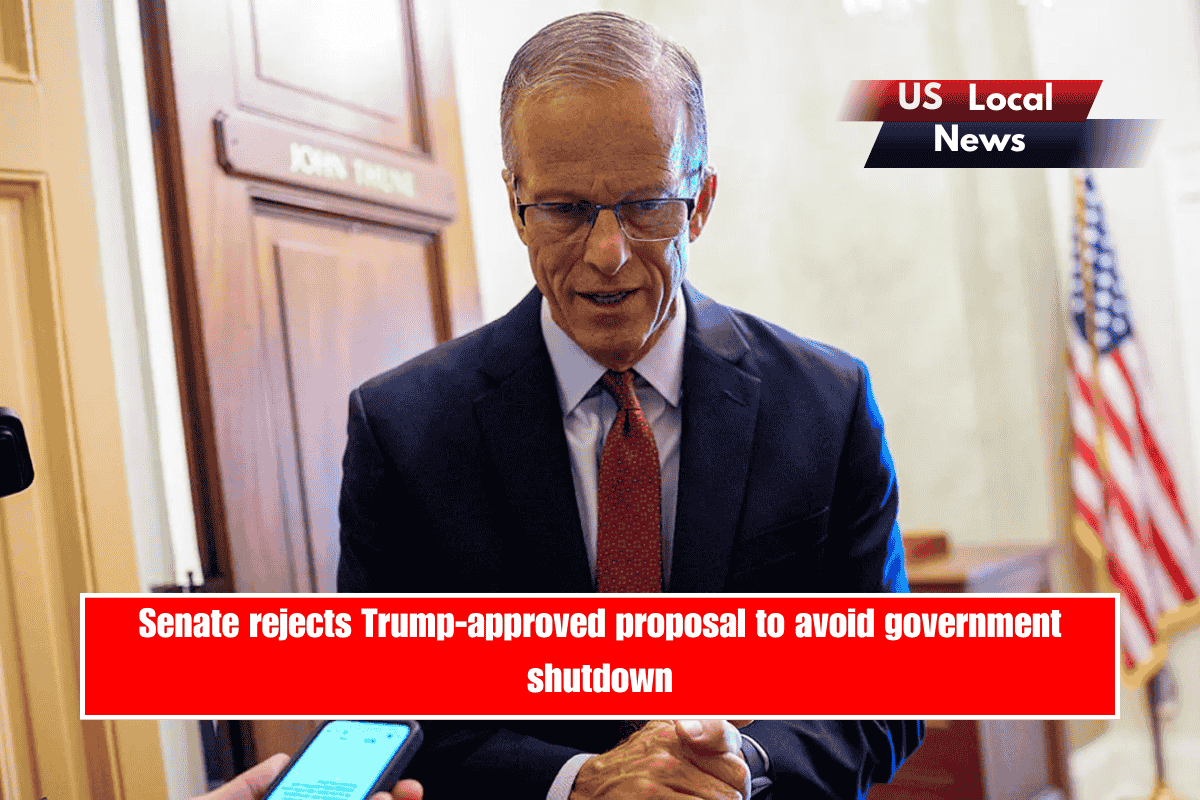Senate Republicans’ attempt to pass a short-term government funding extension was foiled by Senate Democrats as the deadline to fund the government approaches.
While the proposal passed through the House with little drama, it met a brick wall in the Senate, failing 44-48. Only one senator, Sen. John Fetterman (D-Pa.), crossed the aisle to support the Republican proposal. Senators Rand Paul (R-Ky.) and Lisa Murkowski (R-Alaska) both voted against the bill.
Their failure to send the House GOP’s continuing resolution (CR) to President Donald Trump’s desk followed Democrats’ failed attempt to advance their own counter-proposal to the Republican plan.
It also comes as lawmakers prepare to leave Washington, D.C. for a week to observe Rosh Hashanah, the Jewish New Year. They are expected to return with only two working days remaining before the government’s funding deadline of September 30.
“The House has acted,” said Senate Majority Leader John Thune (R-South Dakota). “The president is prepared to sign the bill. We have the appropriations committee and a large number of senators ready to work to pass bipartisan appropriations bills to fund the government by extending the November deadline. To accomplish this, Democrats must accept ‘yes’ as an answer.”
The CR would have kept the government open until November 21, and it included tens of millions of dollars in increased security for lawmakers, the judiciary, and the executive branch.
Senate Democrats are opposed to the GOP’s proposal not so much for what it contains, but for what it does not contain. They also blamed the possibility of a government shutdown on Trump, who demanded that Republicans exclude Democrats from the process.
Thune argued that if Democrats were “serious” about funding the government, they would not have “put out the most partisan piece of legislation you possibly could.”
“I mean, it’s kind of mind-boggling,” he told me.
Senate Minority Leader Chuck Schumer, D-N.Y., has also accused Thune of refusing to negotiate with him, a charge Thune has denied, pointing out throughout the week that his office is less than 25 yards from Schumer’s.
“We have two weeks. “They should sit down and talk to us, and perhaps we can get a good proposal,” Schumer said. Let’s see. But if they don’t talk to us, there’s no chance of getting a good proposal. “That makes no sense.”
“And again, when Donald Trump says don’t negotiate with Democrats, because he doesn’t know what the Senate is like, or he doesn’t know how to count, because without Democrats, they’re going to end up shutting down the government,” according to him.
However, Republicans find the demands made by Schumer and Democrats in their counter-proposal to be too much.
The bill included a permanent extension of COVID-19 pandemic-era Obamacare subsidies, which are set to expire at the end of the year, efforts to repeal the Medicaid cuts in Trump’s “big, beautiful bill,” and a clawback of canceled NPR and PBS funding.
Senate Majority Whip John Barrasso, R-Wyo., told Fox News Digital that the bill was a “trojan horse by the Democrats.”
“It’s to me, it’s a preview of what they’re going to want to do,” he laughed.
“Schumer has to play to the far-left fringe that is actually running the Democrat Party right now,” according to Barrasso.
Senate Democrats are adamant that the Obamacare credits, in particular, should be addressed now rather than near the deadline. Sen. Gary Peters (D-Mich.) told Fox News Digital that lawmakers “have to do it now.”
“All the [insurance rate] notices go out Oct. 1, so you have to have it now,” Peters told me.
Republicans, on the other hand, argue that including an extension of the tax credits in a short-term extension is irrelevant to the bill, particularly one aimed at giving Congress more time to fund the government through spending bills. And Thune has stated that the credits will be “addressed” once a shutdown is avoided.
For the time being, however, the issue remains one of communication between Thune and Schumer.
“I mean, these are the leaders of the U.S. Senate,” said Sen. Thom Tillis, R-North Carolina. “I expect them to step up. And if one isn’t reaching out, the other should show that they are — they’re attempting to negotiate in good faith. “If they don’t, they get what they deserve.”









